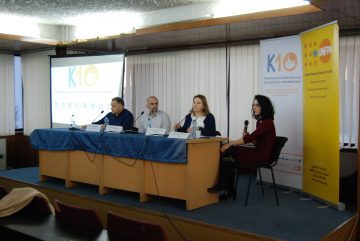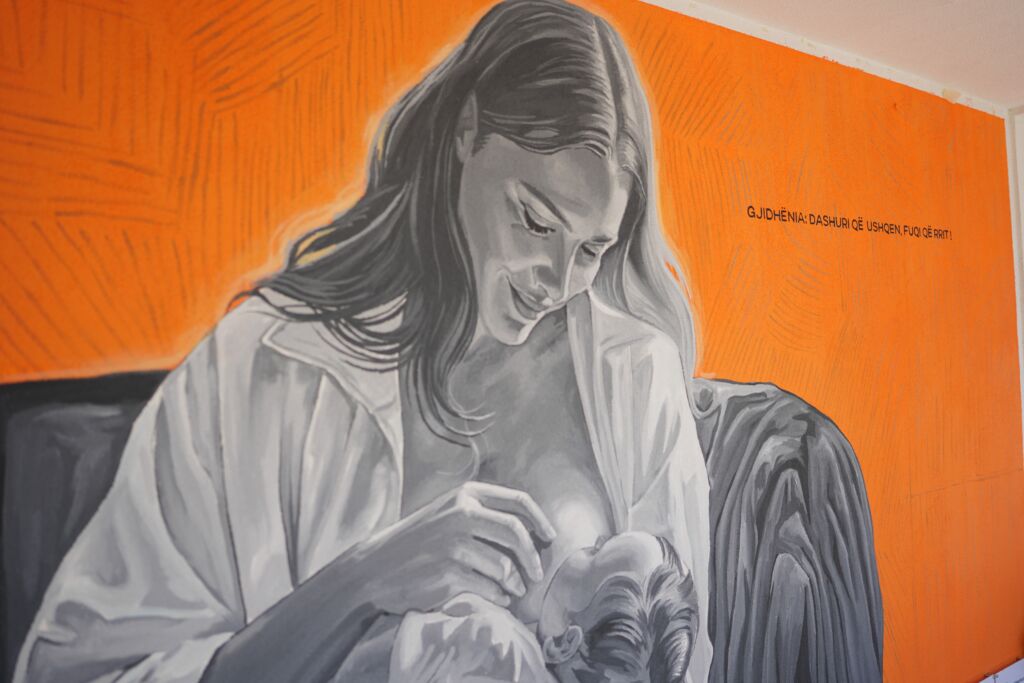
Comprehensive Sexual Education – Positive Change and Breaking the Taboo
08.11.2017
-Prishtina, 1 November 2017
At the Student Center, an open discussion was held with the theme “Comprehensive Sexual Education”. This open discussion was organized by the Coalition K10, a coalition consisted of ten non-governmental organizations on health and sexual and reproductive rights, supported by the United Nations Population Fund (UNFPA), Office in Kosovo.
The open discussion on the topic of Comprehensive Sexual Education (ECG) presented the important role of ESGs in preventing the negative phenomena of sexual and reproductive health among young people. Also, this discussion was intended to teach young people the ability to make responsible decisions about their sexuality, including methods of avoiding verbal, physical, and sexual violence. On the other hand, the panel addressed gender issues and human rights and promoted respectful and non-violent relationships, the consequences and risks of non-education of the youth on sexuality, and the importance of comprehensive sexual education in the curricula.The panelists of this discussion were: Prof. Dr. Ilir Begolli-National Institute of Public Health; Dr. Vjollca Zeqiri – Main Family Medicine Center and Mr. Rifat Batusha – Kosovo Population Fund.
Prof. Dr. Ilir Begolli informed the participants about health education and sub-branches of comprehensive education by being more detailed in sexual education as the main topic of open discussion. He argued that “Comprehensive education does not only mean health education in schools or in the family, but it means open communication in the daily life of the topic that remains taboo in our country.” He stressed that the interest in getting information on this topic from young people has increased significantly. He also informed the participants about some general statistics on sexually transmitted diseases according to NIPHK.On the other hand, Mr. Rifat Batusha from the KOPF organization shared his experience and the problems encountered during the 14-year journey of this organization in the field of health education. He stressed that although now part of Kosovo’s curricula, the respective professors for the unknown reasons have never been part of the training that KOPF has organized.
Dr. Vjollca Zeqiri from QKMF in Pristina explained more about primary care work in the field of health education through various trainings and shared her experiences on abortion issues, sexually transmitted diseases and gender aspects. According to Dr. Zeqiri primary care has overcome the gender problem in relation to sexual education.
The open discussion on the topic of Comprehensive Sexual Education (ECG) presented the important role of ESGs in preventing the negative phenomena of sexual and reproductive health among young people. Also, this discussion was intended to teach young people the ability to make responsible decisions about their sexuality, including methods of avoiding verbal, physical, and sexual violence. On the other hand, the panel addressed gender issues and human rights and promoted respectful and non-violent relationships, the consequences and risks of non-education of the youth on sexuality, and the importance of comprehensive sexual education in the curricula.The panelists of this discussion were: Prof. Dr. Ilir Begolli-National Institute of Public Health; Dr. Vjollca Zeqiri – Main Family Medicine Center and Mr. Rifat Batusha – Kosovo Population Fund.
Prof. Dr. Ilir Begolli informed the participants about health education and sub-branches of comprehensive education by being more detailed in sexual education as the main topic of open discussion. He argued that “Comprehensive education does not only mean health education in schools or in the family, but it means open communication in the daily life of the topic that remains taboo in our country.” He stressed that the interest in getting information on this topic from young people has increased significantly. He also informed the participants about some general statistics on sexually transmitted diseases according to NIPHK.On the other hand, Mr. Rifat Batusha from the KOPF organization shared his experience and the problems encountered during the 14-year journey of this organization in the field of health education. He stressed that although now part of Kosovo’s curricula, the respective professors for the unknown reasons have never been part of the training that KOPF has organized.
Dr. Vjollca Zeqiri from QKMF in Pristina explained more about primary care work in the field of health education through various trainings and shared her experiences on abortion issues, sexually transmitted diseases and gender aspects. According to Dr. Zeqiri primary care has overcome the gender problem in relation to sexual education.
It is worth noting that the three professionals do not consider abortion as a method of contraception, but objectively object to reaching the abortion stage as there are preventive and planning tools for unwanted pregnancies.
Eventually, students showed interest in the subject and addressed specific questions to panelists.





